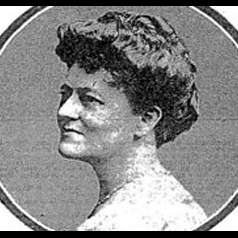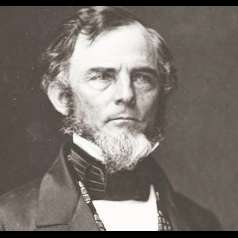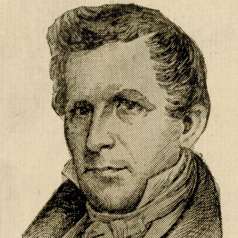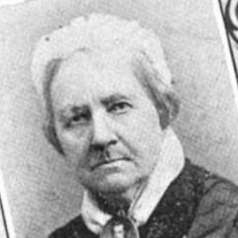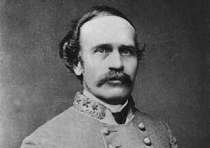
Bushrod Rust Johnson (October 7, 1817 – September 12, 1880) was a university chancellor, one of only a few Confederate generals from the north. Raised a Quaker in Belmont County, Ohio, Johnson worked on the Underground Railroad with his uncle and graduated from West Point in 1840. Commissioned as a second lieutenant, he fought in the Seminole War and the Mexican-American War.
Accused of selling contraband goods, he resigned from the Army in 1847 and worked as a professor of philosophy and chemistry at Western Military Institute in Kentucky and later professor of engineering at Nashville University. During those years he was active in state militias.
When the Civil War began, Johnson became a colonel of engineers. He was a key figure in the construction of Fort Donelson on the Cumberland River, promoted to brigadier general and placed in command of the fort until the arrival of Gen. Gideon J. Pillow. Pillow led a fierce attempt to break out of the surrounded fort but was forced to surrender to Gen. U.S. Grant.
Johnson escaped capture to command a brigade of the Army of Mississippi at Shiloh, where he was promoted to division commander on the second day of battle before being severely wounded. After his recovery, he led his division in the Battle of Perryville, Stones River, Tullahoma, Chickamauga, all under Gen. Braxton Bragg’s command, and the Siege of Knoxville under Longstreet.
On May 21, 1864, he was made a major general and served the rest of the war under Robert E. Lee in the Army of Northern Virginia. His division captured three strands of colors and 130 prisoners at the Battle of the Crater and fought in the trenches at Petersberg, White Oak and Five Forks. His division was almost destroyed at Sayler’s Creek.
After his parole at Appomattox, he returned to teaching and became co-chancellor of the university of Nashville. In 1875 he retired to Brighton, Illinois, where he died in 1880 and was originally buried. He was reinterred in 1975 at Old City Cemetery, Nashville, with his wife, Mary.
Tools
Key Facts
- Raised as a Quaker in Ohio, attended West Point.
- Instrumental in the construction of Fort Donelson.
- Became division commander of the Army of Mississippi at Shiloh, where he was severely wounded.
- Fought at Tullahoma, Stones River, Knoxville.




